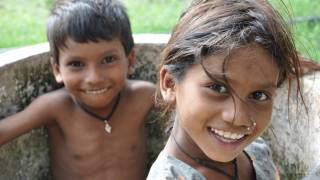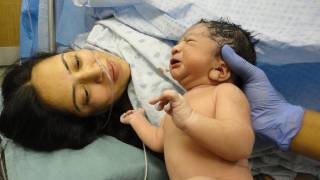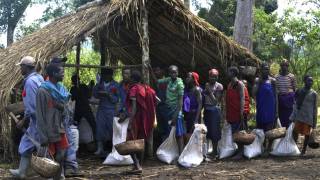New Ways to Prevent Rotavirus

A combination of substances secreted by the immune system can prevent rotavirus infection, as well as potentially treat other viral infections that target epithelial cells, according to researchers in the Institute for Biomedical Sciences at Georgia State University (GSU).
The substances identified in this pre-clinical GSU study which was published on October 2, 2020, officially known as cytokines, are interleukin 18 (IL-18) and interleukin 22 (IL-22). IL-18 and IL-22 are produced when the body detects a protein in the whip-like appendage of bacteria.
The study, which investigated how these cytokines inhibit rotavirus infection, found when mice were treated with both IL-18 and IL-22, the cytokines promoted each other’s expression, but also impeded rotavirus by independent, distinct mechanisms that involved activating receptors in intestinal epithelial cells.
According to the GSU researchers, the actions resulted in rapid and complete expulsion of rotavirus, even in hosts with severely compromised immune systems.
Furthermore, this combo therapy was also found to be effective for norovirus, a contagious virus that causes vomiting and diarrhea.
“Our study reports a novel means of eradicating a viral infection, particularly viruses that infect epithelial cells,” said Dr. Andrew Gewirtz, senior author of the study and a professor in the Institute for Biomedical Sciences at GSU, in a press release. “The results suggest that a cocktail that combines IL-18 and IL-22 could be a means of treating viral infections that target short-lived epithelial cells with high turnover rates.”
The study is funded by grants from the US National Institutes of Health.
Rotavirus is an enteric infection that can cause severe morbidity and contributes to childhood mortality in resource-poor countries where the existing vaccine is of moderate efficacy, states the US Centers for Disease Control and Prevention (CDC).
Most children who get the vaccine will be protected from severe rotavirus disease. About 7 out of 10 children will be protected from rotavirus disease of any severity.
Each year, rotavirus vaccination prevents an estimated 40,000 to 50,000 hospitalizations among US infants and young children.
Two rotavirus vaccines are currently licensed for infants in the USA:
- RotaTeq is given in 3 doses at ages 2 months, 4 months, and 6 months,
- Rotarix is given in 2 doses at ages 2 months and 4 months.
The first dose of either vaccine should be given before a child is 15 weeks of age. Children should receive all doses of rotavirus vaccine before they turn 8 months old.
Both vaccines are given by putting drops in the child’s mouth, says the CDC.
PrecisionVaccinations publishes research-based vaccine news.
Our Trust Standards: Medical Advisory Committee

























